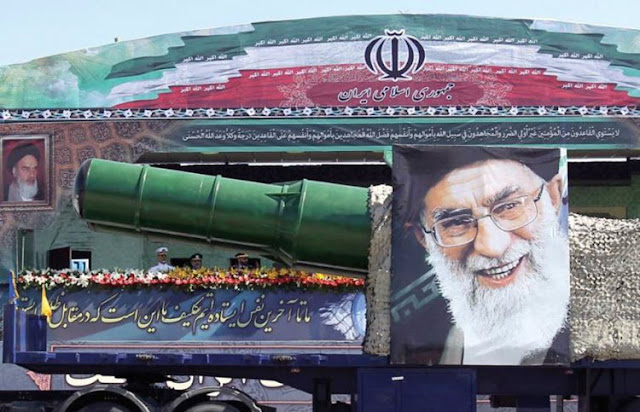Iran Focus
London, 31 Mar - Crown Prince Mohammed bin Salman’s high-profile visit to the White House is significant because his discussions with US President Trump were tied to the upcoming quarterly deadline to assess whether Tehran is complying with the Iran nuclear deal, formally known as the Joint Comprehensive Plan of Action (JCPOA). Trump made his opposition to the JCPOA a central position in his presidential campaign, and it is uncertain whether the US will pull out of the agreement.
Following the Crown Prince’s visit, in a move that received widespread international condemnation, Yemen’s Houthi militia launched seven ballistic missiles targeting civilian areas in Saudi Arabia. In Washington, the attacks are viewed as an Iranian attempt to escalate the war in Yemen as part of a strategic effort to undermine the growing US-Saudi relationship.
Trump’s recent appointment of John Bolton as his national security adviser and Mike Pompeo as secretary of state are also believed to play a part, as both Bolton and Pompeo are well known for their positions on Iran.
Tehran depends on sanctions relief to operate its government and prevent the economy from collapsing, so Trump’s objective in creating uncertainty over whether his administration will pull out of the JCPOA is believed to be a means to financially squeeze the regime into negotiations.
The Bolton and Pompeo appointments are a logical step toward implementing Trump’s anti-Iran policies and raising the pressure on Tehran over other issues, such as ballistic missile testing and arming proxies. In an article for Arab News, Middle East analyst and columnist, Sigurd Neubauer writes, “
Bolton and Pompeo expected to be able to build on US president’s hardball stance against Tehran to forge a grand bargain with Iran that includes changes to its regional policies.”
It is believed that an US-EU consensus on these issues could be followed by Russia’s endorsement, with perhaps its own modifications, and that China will support the revisions, as well.
However, there is no guarantee that Russia will accommodate the request to revise the JCPOA. In light of the recent decision to expel 60 Russian diplomats over Moscow’s alleged role in attempting to kill a former spy and his daughter in the UK, a US-Russian he US-Russia relationship is at an all-time low.
For all practical purposes, Trump’s uncertainty over the future of the JCPOA, as well as his support of the recent Iran protests, is putting Iran on notice. Now, Pompeo’s responsibility will be to negotiate with his international counterparts to “fix” the JCPOA, and Bolton will be responsible for coordinating policy — including on Iran — at the White House.





Comments
Post a Comment